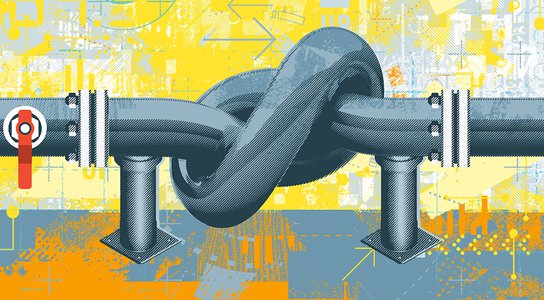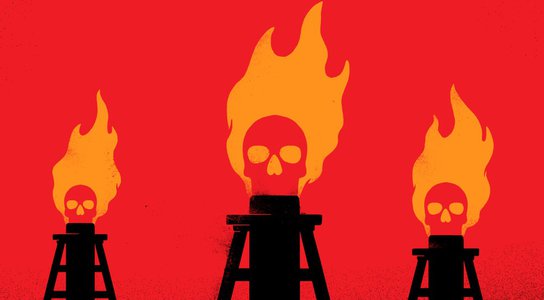
The EU has wasted nearly €440 million in taxpayer cash on fossil gas infrastructure projects that have either failed or are likely to fail. All of this money has been spent on projects backed by gas companies with influence over how the EU picks projects to support. Yet the European Commission is now consulting on which new gas projects should get EU backing. These projects should be rejected and the law allowing for their support – the TEN-E regulation – should be revised to end future aid and companies’ influence.
Taxpayer' cash and fossil gas companies
For much of the past decade, the EU has served as a willing cash machine for European gas companies. Since 2013, nearly €5 billion in taxpayer funded grants and subsidized loans has been spent on 41 gas projects like pipelines or import terminals. A list of these projects can be downloaded at the end of this page as can a version of this article with full citations. A map showing where most have been spent is here.
These funds have been unlocked by the Trans-European
Networks-Energy (TEN-E) Regulation, which allows gas infrastructure to receive
special Project of Common Interest (PCI) status – paving the way for subsidies
and fast-track approvals. In January, the European Commission began
consultations on a new list of
proposed PCIs – its fifth in eight years – which includes another 41 gas
projects.
Like previous PCIs, the gas companies that would build
them have proposed these projects. This remarkable conflict of interest is
actually enshrined in the TEN-E regulation, which gives companies – working
through an association called the European Network of Transmission System
Operators for Gas (ENTSOG) – power over how projects are selected. As a result,
ENTSOG member companies like Italy’s SNAM, Poland’s GAZ-SYSTEM, and Romania’s
TRANSGAZ have backed projects that have received the lion’s share of the EU’s
gas subsidies: over €4.1 billion.
Waste on failed and likely failed projects
There is compelling evidence that EU gas
infrastructure subsidies should stop, whether or not they go to companies with
undue influence. According to the think tank Artelys, Europe
does not need more gas infrastructure – it already has what it needs to meet
demand. This demand is due to shrink rapidly: the Commission estimates that
member states must reduce their gas use by 90 percent over the next 30 years if
the worst impacts of climate change are to be avoided. By definition, any
further spending on unnecessary gas projects would be a waste of taxpayer
money.
However, for EU citizens watching their wallets there
is a second reason to stop gas subsidies: failed projects. Since 2013, the EU
has spent €439 million on seven PCIs that that either did not get off the ground or have been built but are unlikely to
transport gas.
This is a dismal record: nearly 10 percent of all EU gas subsidies has been wasted.
As might be expected, gas companies that have influence over where subsidies are spent – ENTSOG members – bear particular responsibility for this waste. Indeed, all of the wasted EU subsidies have been spent on projects backed by ENTSOG members. A list of failed and likely failed projects is included at the end of this page.
Some of the EU’s money, which taxpayers will not get back, has been spent on projects that were never built. These include subsided studies for pipelines between Portugal and Spain or Austria and the Czech Republic.
Most of the EU’s wasted money has been spent on a project that has been partially-built. Since 2014, the EU has poured €431 million into the BRUA pipeline, which is backed by Romania’s TRANSGAZ. BRUA was designed to transport gas between Bulgaria, Romania, Hungary, and Austria, with the intention of supplying gas to Austria from Romania’s offshore Black Sea fields.
It appears likely that BRUA will fail to meet either of these objectives. A section of the pipeline was completed in November 2020, but it is located entirely in Romania and reaches neither the Black Sea nor the country’s neighbours. Investors are now worried that BRUA will not transport gas from the Black Sea, after Exxon – which had been leading the largest proposed project – announced it wanted to sell its license. In April, these doubts resulted in the cancellation of plans to extend BRUA into Hungary.
TRANSGAZ’s Director General Ion Sterian has stated that BRUA is already successful, improving Romania’s internal network, linking Romania to Bulgaria, and that it would eventually transport gas from the Black Sea. But Maria Mânicuță – head of the country’s gas regulator – has been less positive. The pipeline would ultimately be used, she said, “but since we did not solve Black Sea gas extraction, I am wondering what we will be transporting through this pipeline.”
As the EU races to do it part to fight the climate emergency, the cost of wasting EU money on fossil fuel projects could not be more alarming. Just the money spent on failed and likely failed gas PCIs would cover the construction of Spain’s immense Nunez de Balboa solar farm – the largest in Europe – or Denmark’s offshore Rodsand wind farm, which heats 200,000 homes and featured in Christopher Nolan’s recent heist film Tenent.
And it is important to note that Global Witness’ analysis of how much taxpayer money has been wasted is conservative and actual figures will be much higher. Calculations only include subsidies that are controlled by the EU: grants from the Connecting Europe Facility, the European Regional Development Fund, and the European Investment Bank. But PCIs can receive money from additional public sources, including national governments or public banks – including the European Bank for Reconstruction and Development, which loaned BRUA €60 million in 2017.
Enough
This can change and it is the responsibility of the EU to make sure it does. The Commission should drop all gas projects from the proposed fifth PCI list and bar them from receiving additional subsidies, redirecting funds to renewable energy projects. The Commission’s formal consultation on the proposed PCI list will be open until 8 April, and members of the public can submit their opinions here.
Yet simply removing gas projects from the next PCI list will not address the fundamental flaws the EU’s TEN-E regulation that allows gas projects to get PCI status and provides gas companies so much influence.
The TEN-E regulation is also currently under review and can be changed. In December 2020, the Commission published its proposed TEN-E revision, which would stop support for some – but not all – gas projects. The Commission’s proposal, if adopted, would also continue to gift gas companies power over what infrastructure the EU builds and what it spends public money on.
It is now up to the European Parliament and Council to ensure that no more taxpayer money is wasted on unneeded and failed gas projects and to curb the power of the gas industry over public subsidies.


